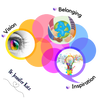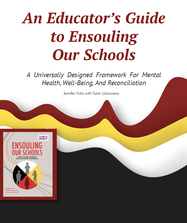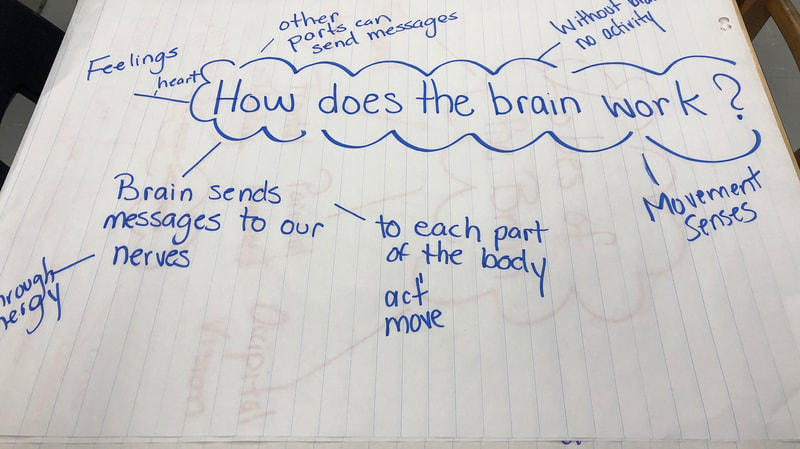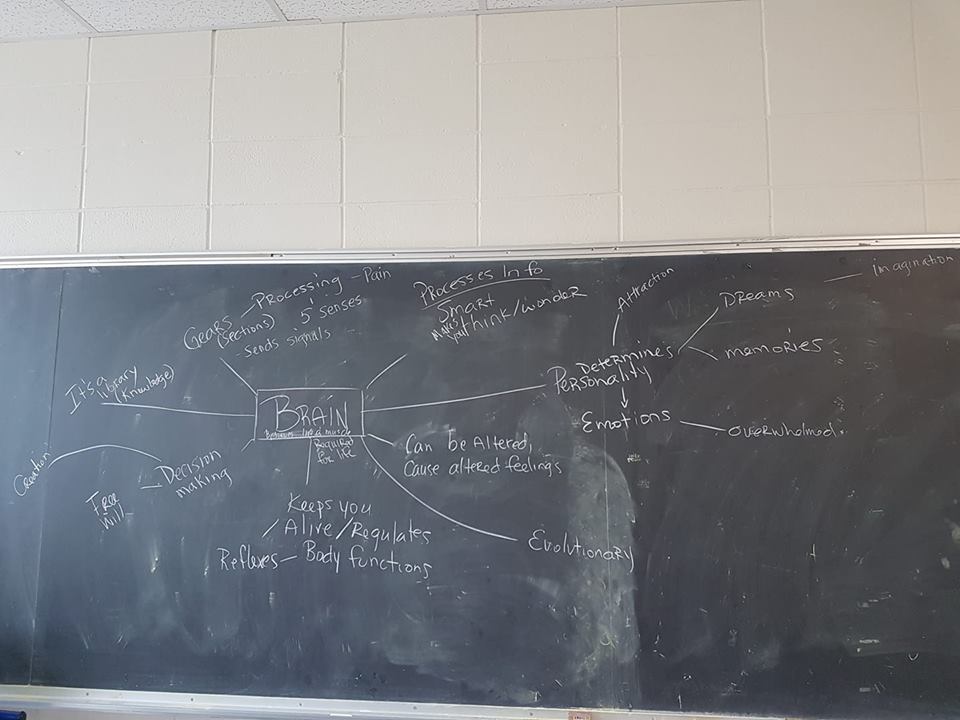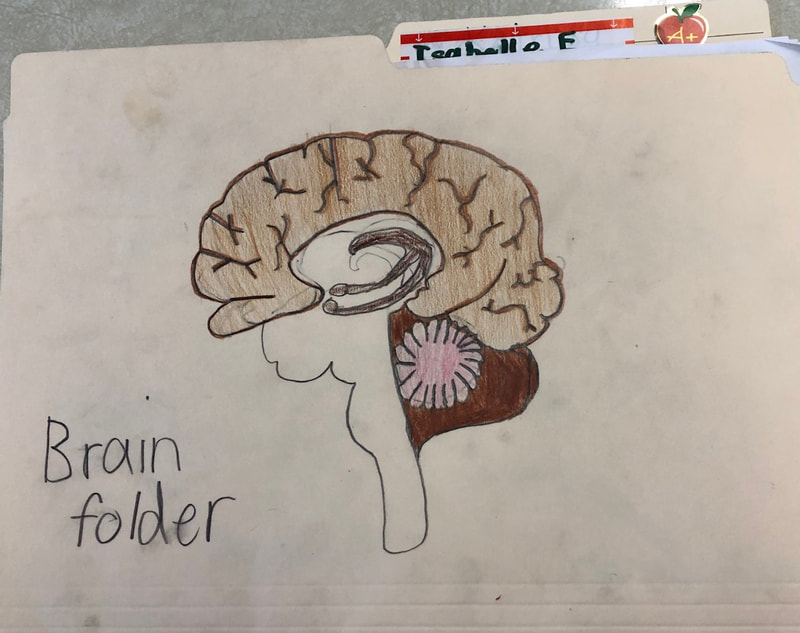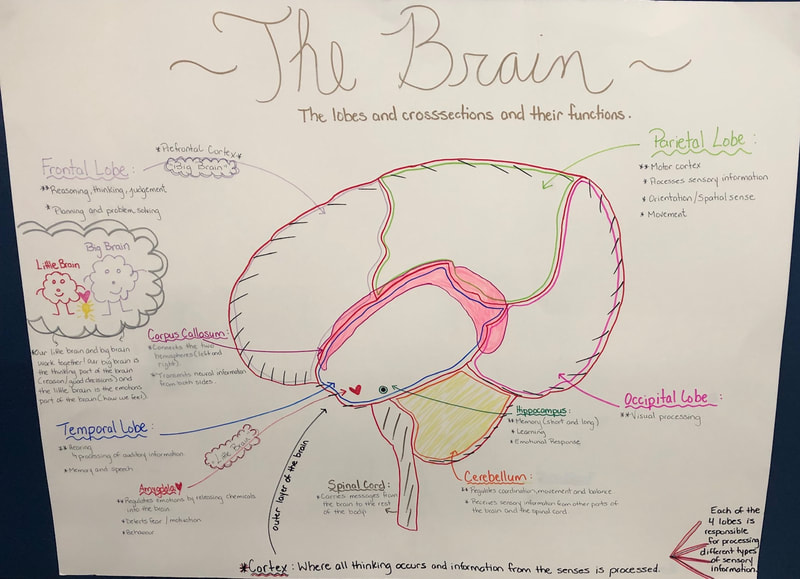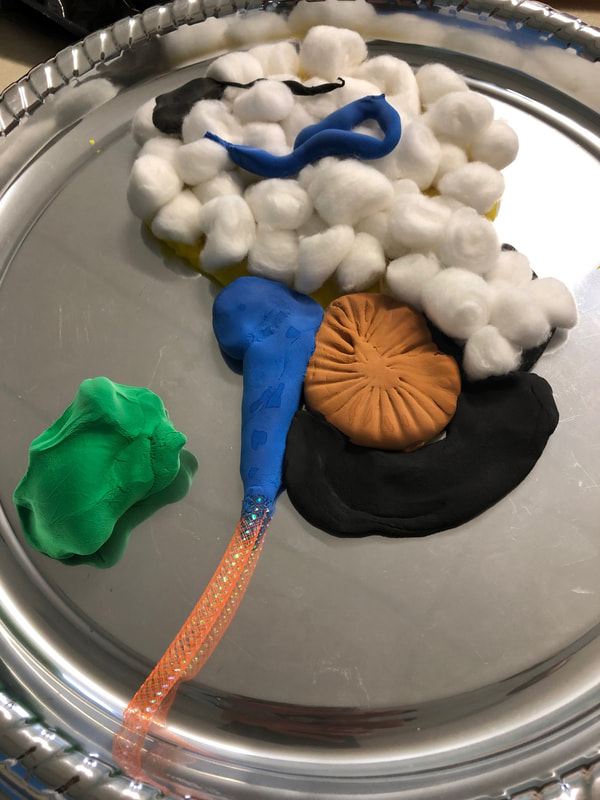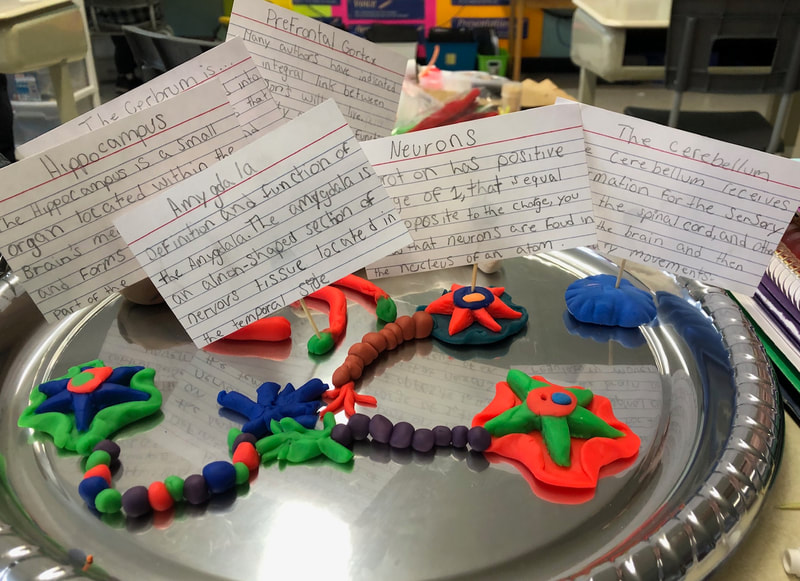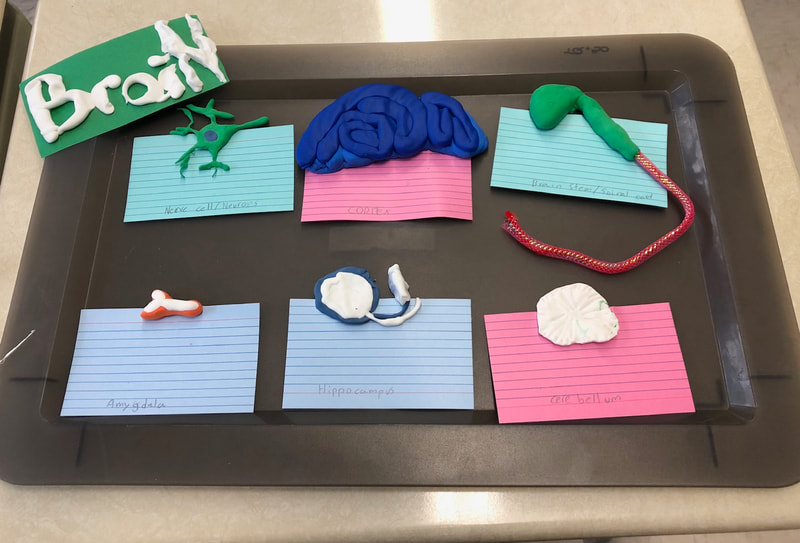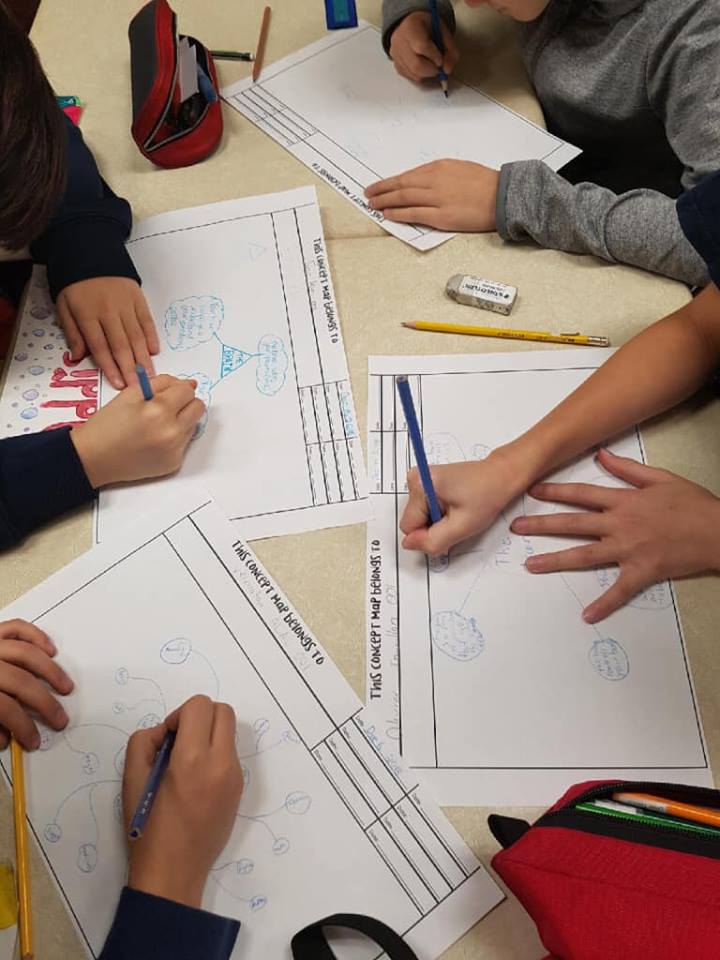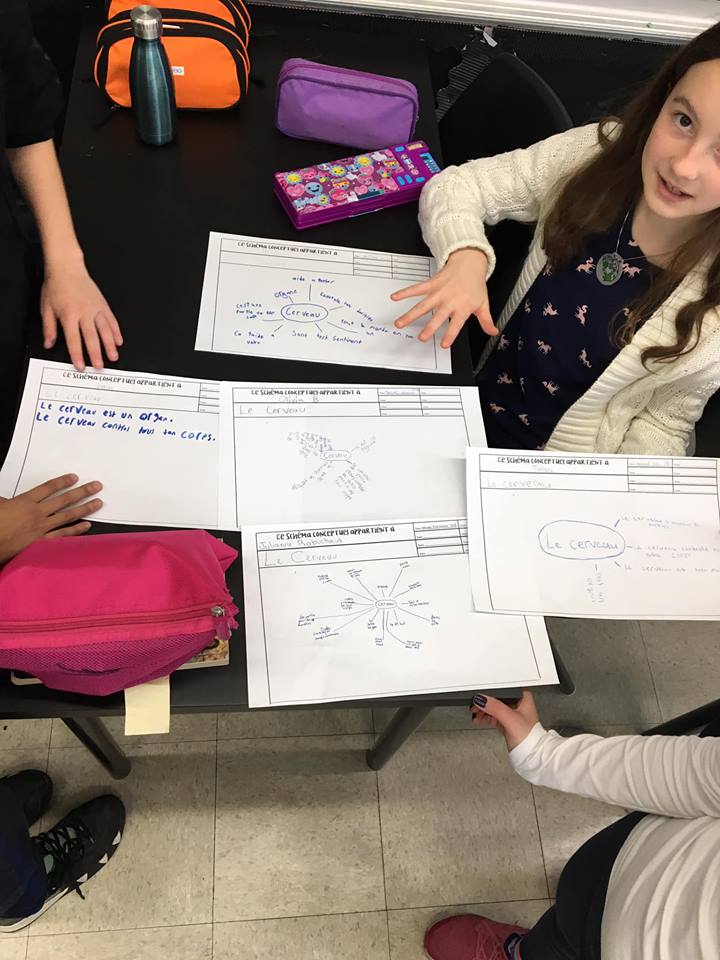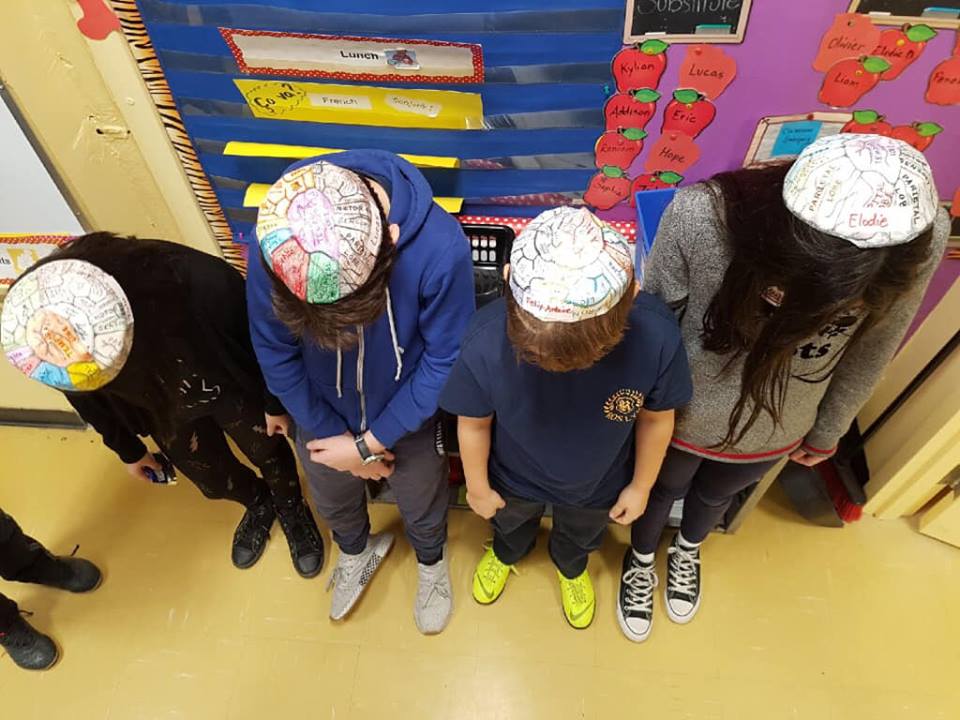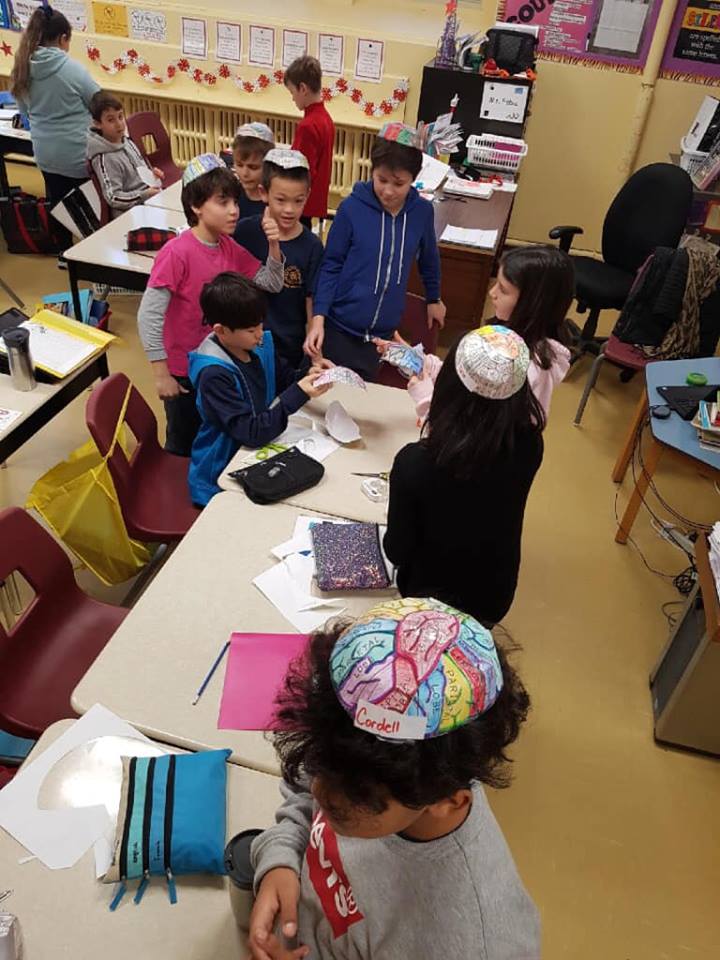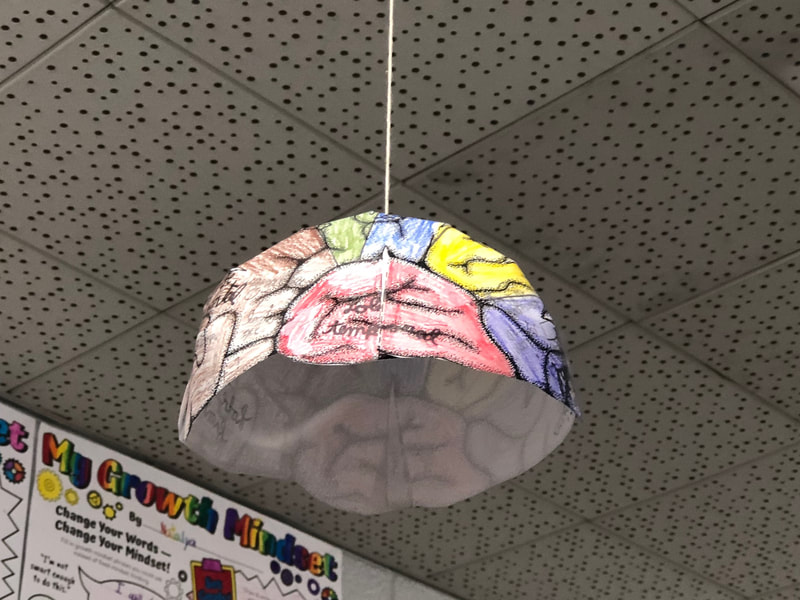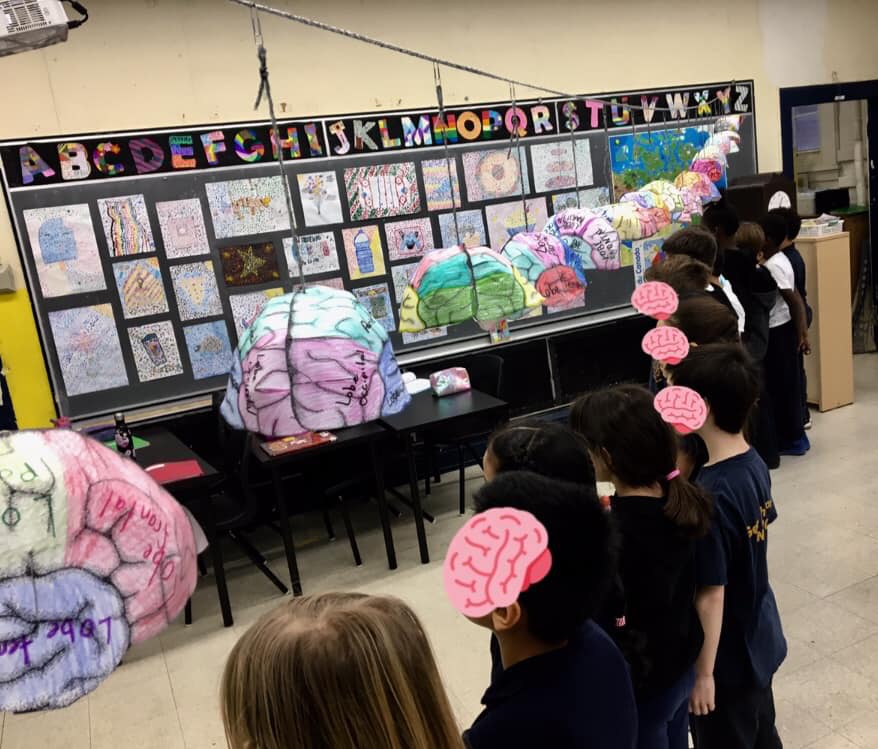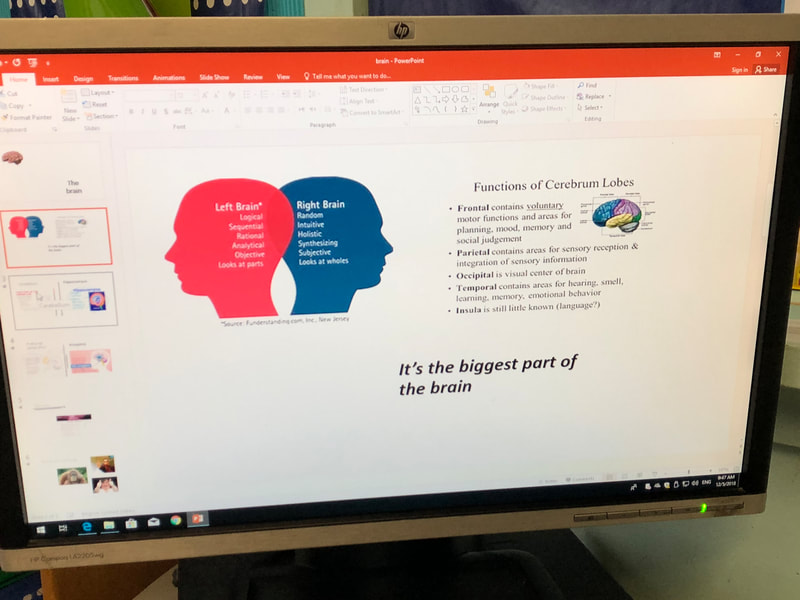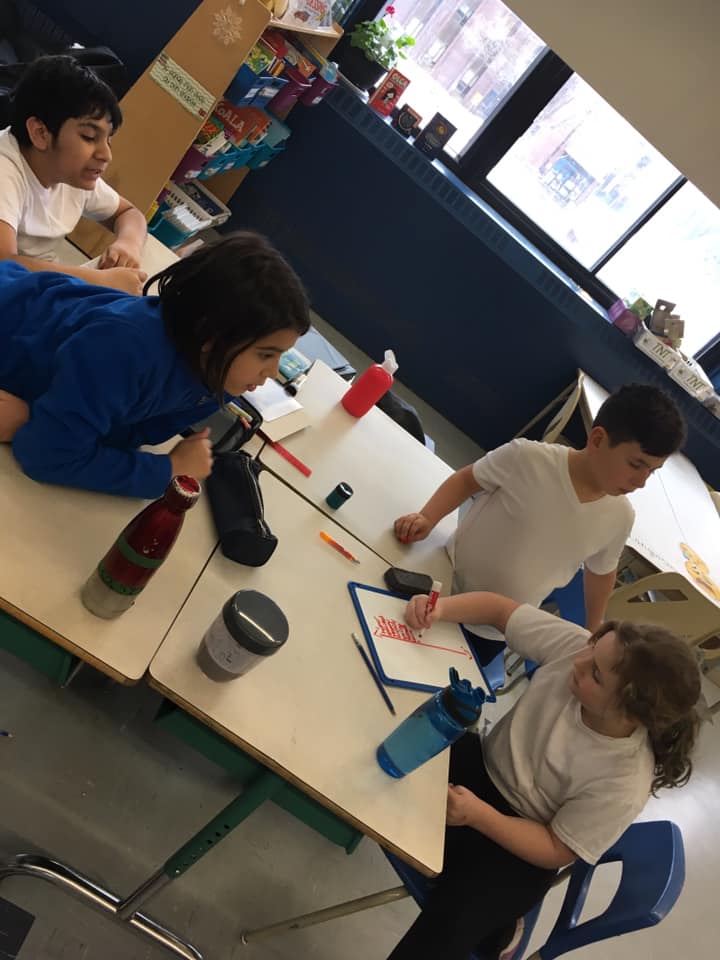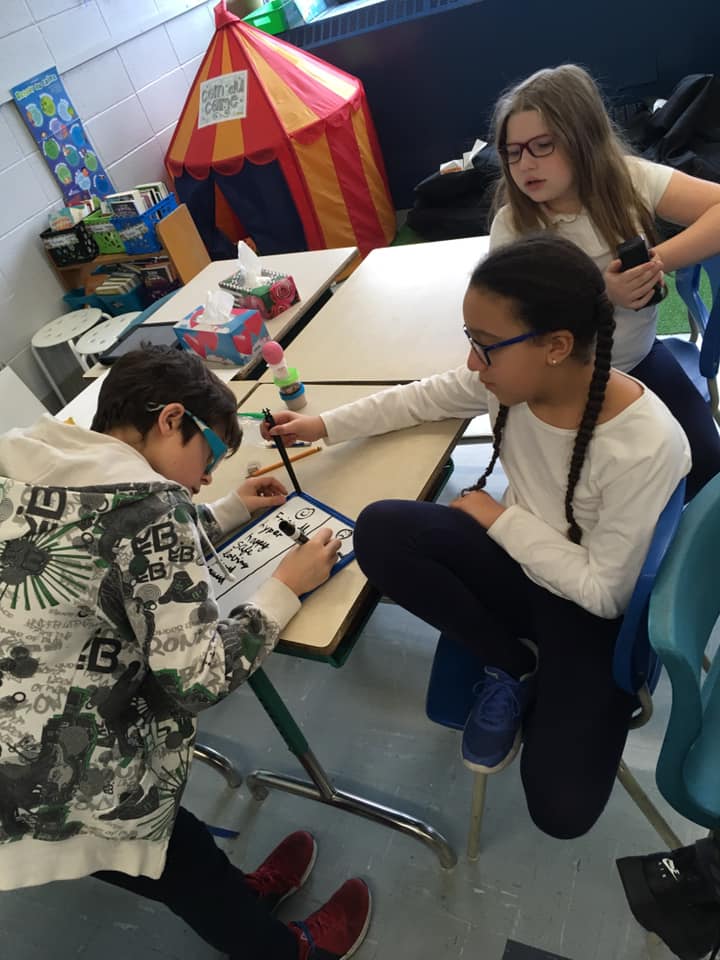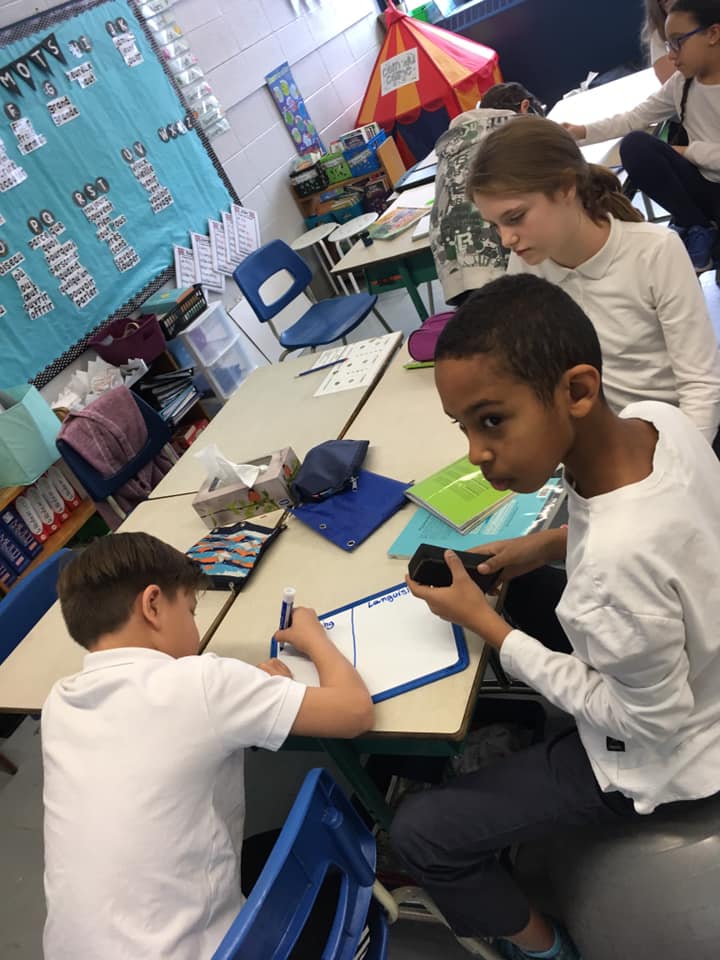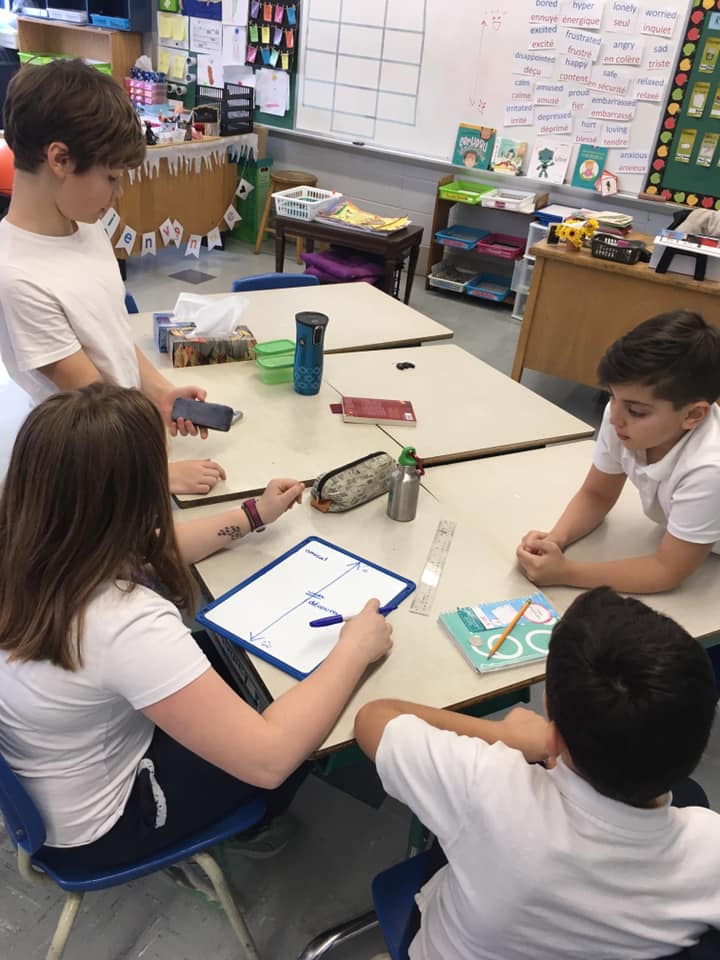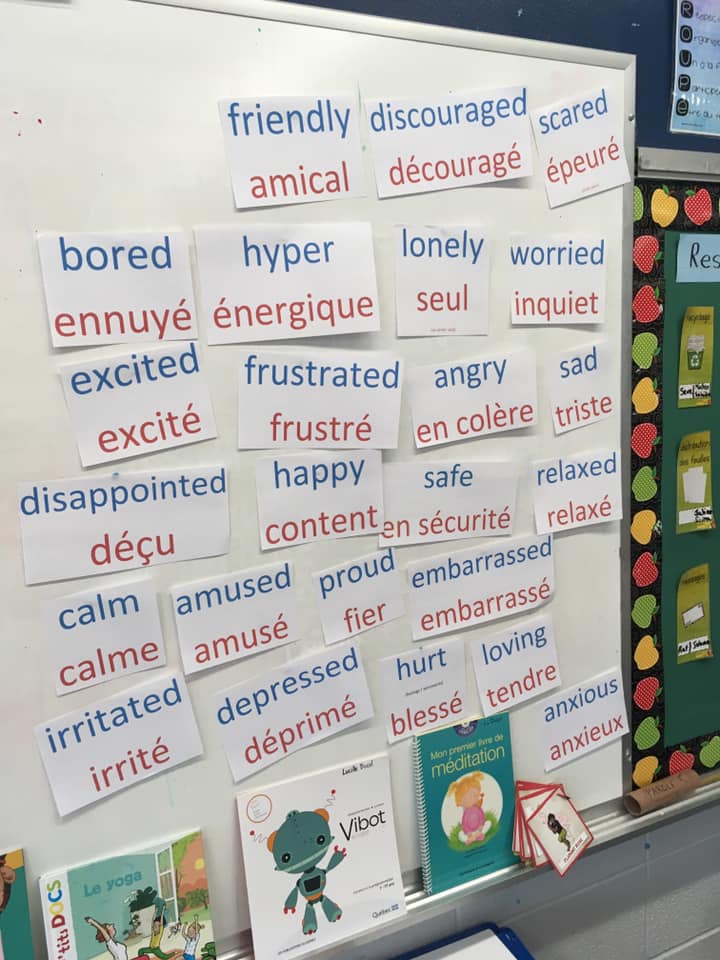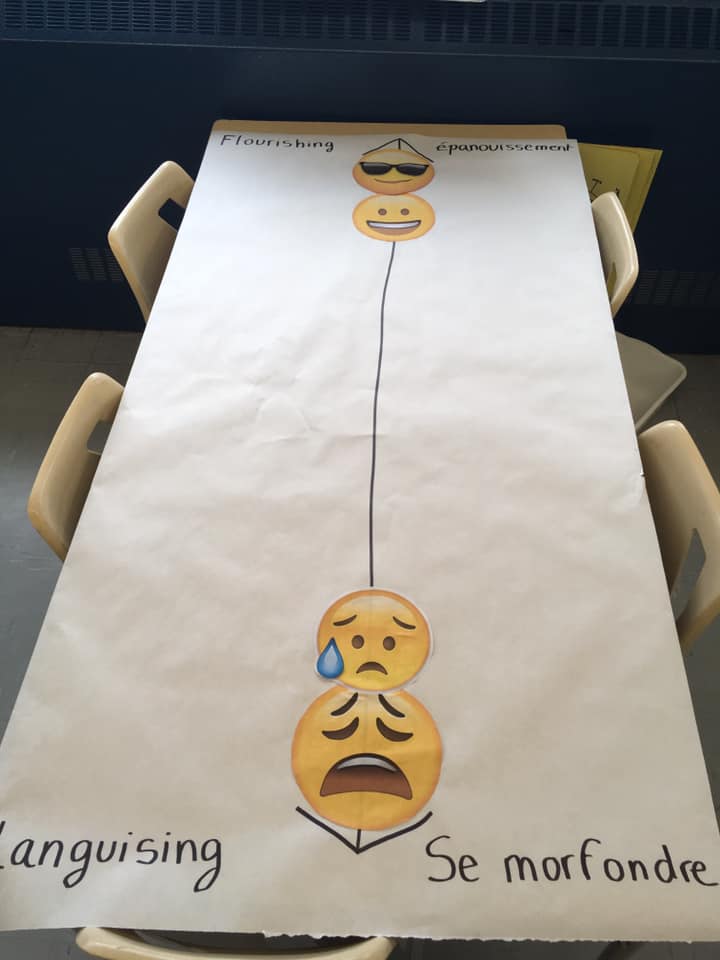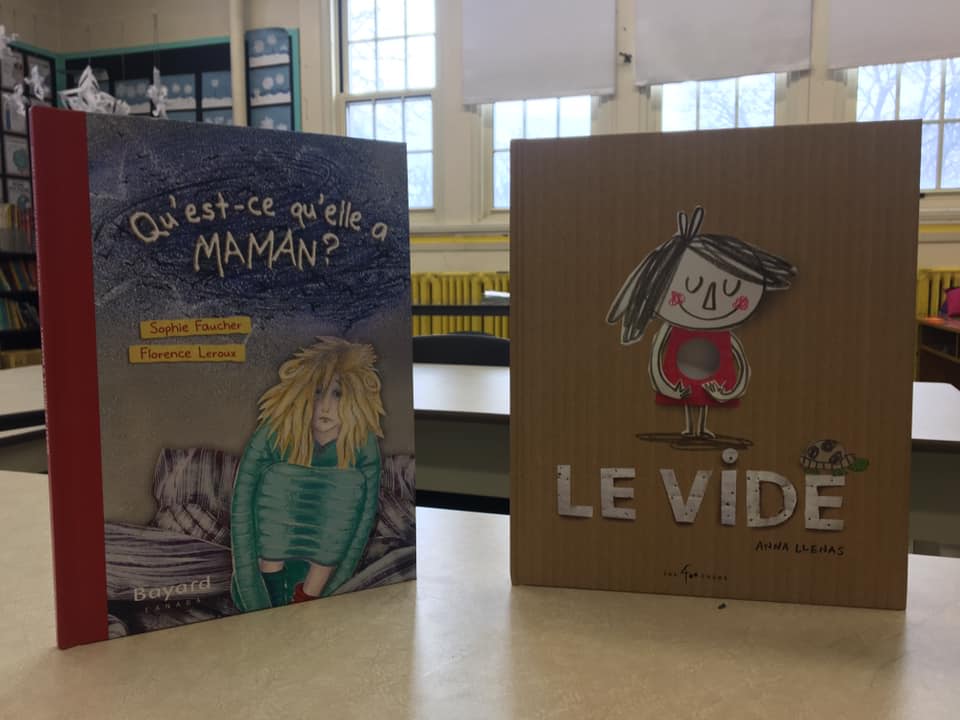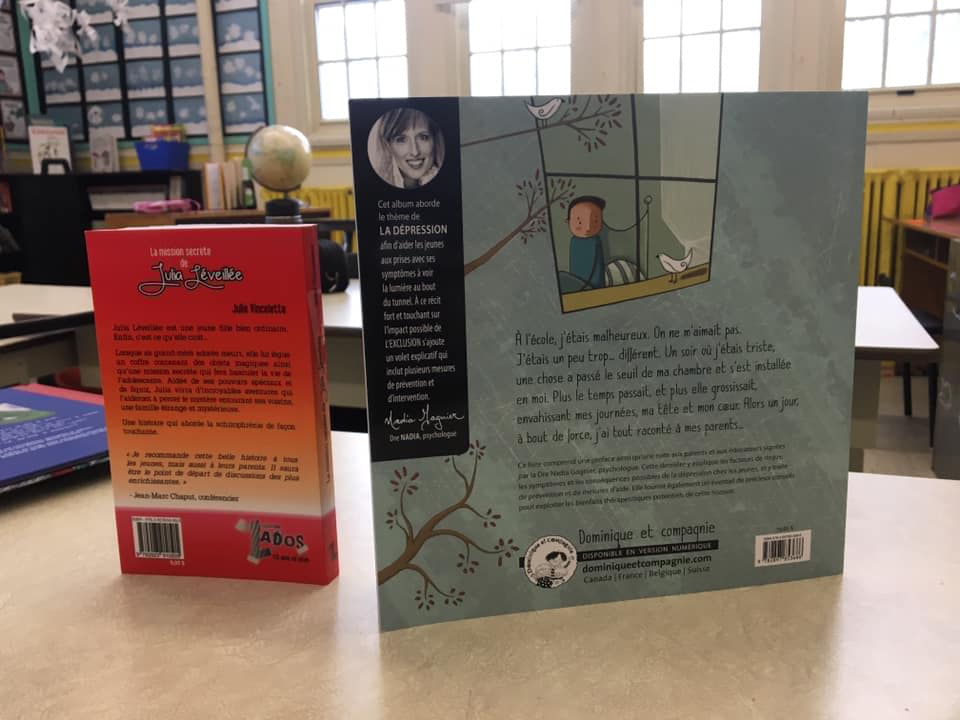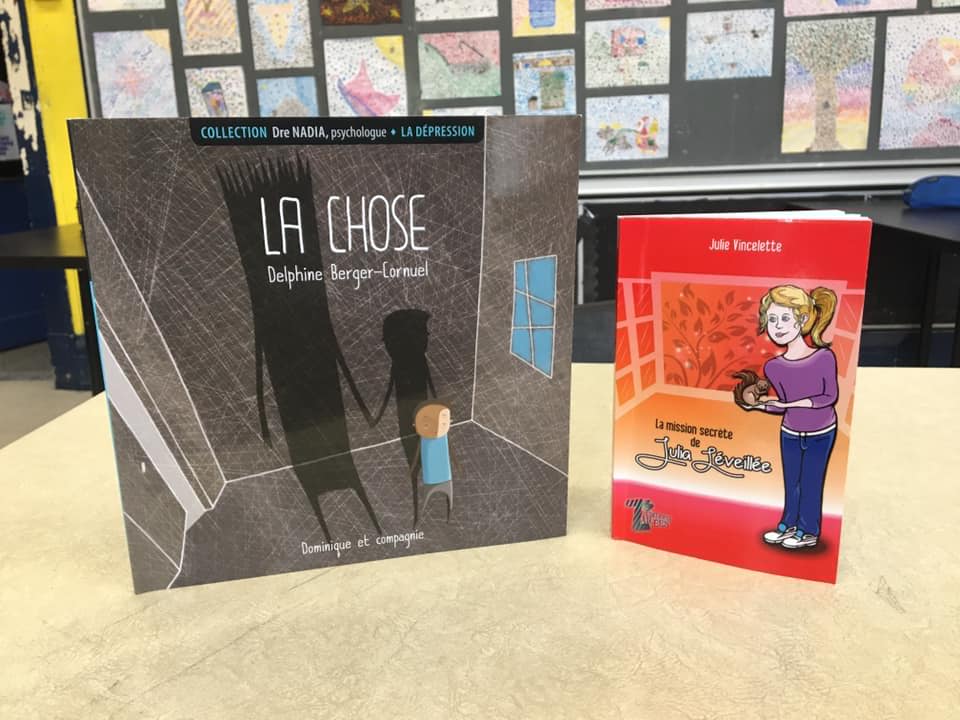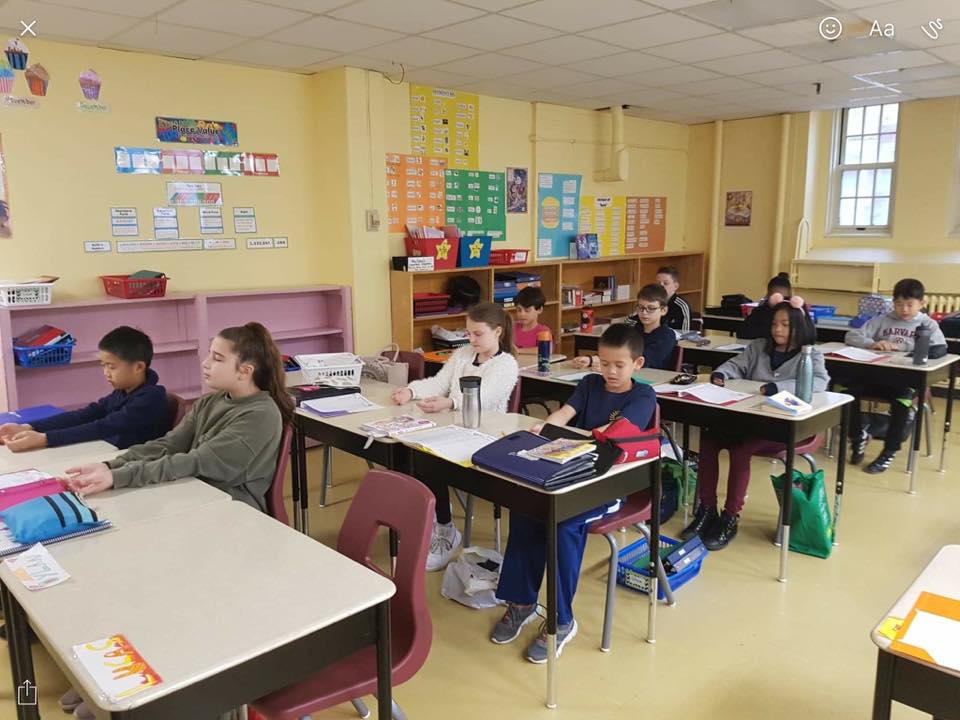ENSOULED SCHOOLS
It's Here!
| |||||||
A sneak peek at some of what is happening in the schools...
Click on the photos for enlarged views!
The Brain Unit
First, students learn about the brain. They study the lobes and major parts of the brain, and their functions. They study neuron communication and how messages are sent within the brain. They learn about cortisol, oxytocin, and neurotransmitters, and the role they play in our emotions and behavior. Students conduct research about mental health and mental illness, and come to understand what is happening for them when they are stressed, and what is affecting others who are showing stress or trauma related behaviors.
|
|
A role play of neuron communication - notice the energy of the nucleus sending out the message, it's travel down the axon, and then it's jump across the synapse :) |
Defining Flourishing and Languishing
A Few French Mental Health Titles
Link to a page created by Vancouver High School teachers with resources for teaching the unit - check it out!
Link to a page created by a Winnipeg High School Science Teacher with resources for teaching the brain and mental health - powerpoints and all!
Mindfulness
Next, they learn strategies for calming themselves down when they are stressed, develop mindfulness and resiliency, and learn how to support each other when needed. Even very young students can participate, as you can see in the "Big Brain, Little Brain" video below.
|
|
Young students learn about the brain and how to calm themselves down when they are stressed. Love how this teacher has made the brain unit work for her students! Video courtesy of Ms. Sheila Vick |
|
Middle years students engaging in mindfulness meditations |
|
|
|
A high school student engages in "volcano breathing" as a calming strategy |
Students Speak on Mindfulness: A Bilingual Video
A High School Teacher Reflects On
Teaching The Brain Unit...
Things are going pretty well in my group. We are a special needs group, but have been plodding along slowly.
We have made a series of mind-maps (one for the brain, that we added to over the course of a week and one for mental health).
We explored the functions of the various parts of the brain. We used the research of the parts of the brain as a way to teach the students how to research without plagiarizing. They each had to create a PowerPoint that showed the functions of the various parts of the brain - information that they had to look up, paraphrase and provide a citation.
We talked about the mental health continua, the five senses and neurochemistry. We used these concepts to create a series of descriptive writing assignments (how it feels to be flourishing vs. languishing, how the senses are related to memories, how you feel when you have a flood of cortisol vs. oxytocin). We discussed also different strategies for dealing with anxiety (breathing techniques, the 20 minute metabolizing period).
We have just completed a pretty involved project on mental illnesses. The students were each assigned a mental illness (I made a point to assign students illnesses that impact their personal lives whenever possible). They had to do research from a variety of sources (websites, videos, books) and create a media presentation raising awareness of the illness, which they then had to present to the class.
For our midterm before the Christmas break, my students will be using all of the information they have, as well as two articles that I have pulled from newsela to write a response answering the guiding question, "Should the topics of mental health and mental illness be taught at school?"
After the Christmas break, we will be working on the second half of the program with mindfulness and all of those crazy acronyms (DBT Skills). However, I keep the book on my desk, and if ever a situation comes up where one is applicable, I whip it out and show the kids. For example, I have been trying to write this email for about an hour. While I was writing, a student came up and asked for my advice on a conflict he is having with his foster parents. I showed him DEARMAN and we practiced what he could say.
We have made a series of mind-maps (one for the brain, that we added to over the course of a week and one for mental health).
We explored the functions of the various parts of the brain. We used the research of the parts of the brain as a way to teach the students how to research without plagiarizing. They each had to create a PowerPoint that showed the functions of the various parts of the brain - information that they had to look up, paraphrase and provide a citation.
We talked about the mental health continua, the five senses and neurochemistry. We used these concepts to create a series of descriptive writing assignments (how it feels to be flourishing vs. languishing, how the senses are related to memories, how you feel when you have a flood of cortisol vs. oxytocin). We discussed also different strategies for dealing with anxiety (breathing techniques, the 20 minute metabolizing period).
We have just completed a pretty involved project on mental illnesses. The students were each assigned a mental illness (I made a point to assign students illnesses that impact their personal lives whenever possible). They had to do research from a variety of sources (websites, videos, books) and create a media presentation raising awareness of the illness, which they then had to present to the class.
For our midterm before the Christmas break, my students will be using all of the information they have, as well as two articles that I have pulled from newsela to write a response answering the guiding question, "Should the topics of mental health and mental illness be taught at school?"
After the Christmas break, we will be working on the second half of the program with mindfulness and all of those crazy acronyms (DBT Skills). However, I keep the book on my desk, and if ever a situation comes up where one is applicable, I whip it out and show the kids. For example, I have been trying to write this email for about an hour. While I was writing, a student came up and asked for my advice on a conflict he is having with his foster parents. I showed him DEARMAN and we practiced what he could say.
Resources for The Brain Unit & DBT Modules
|
| ||||||||||||
|
| ||||||||||||||||||||||||
|
| ||||||||||||
